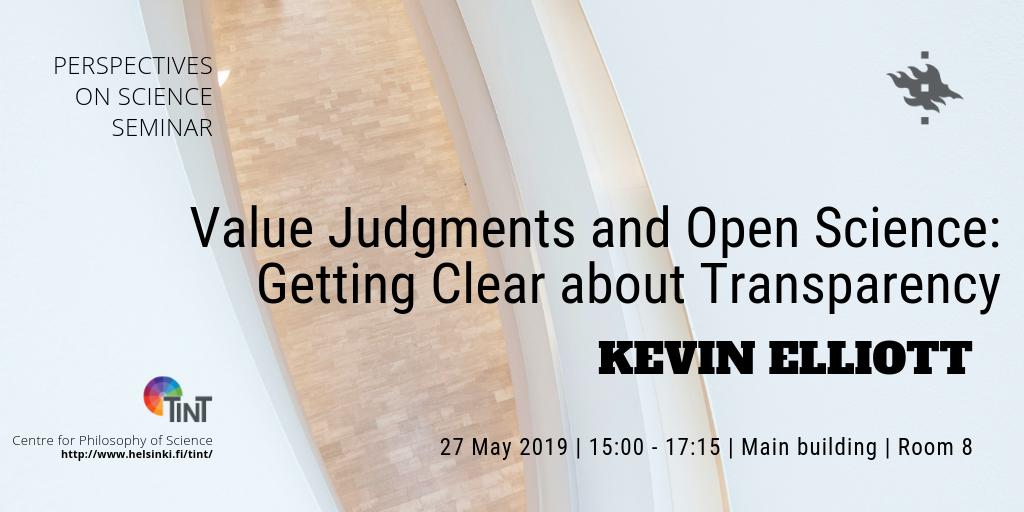At the next Perspectives on Science seminar (Monday 27.5.), Kevin Elliott (Michigan State University) will present his paper entitled “Value Judgments and Open Science: Getting Clear about Transparency”.
Perspectives on Science is a weekly research seminar which brings together experts from science studies and philosophy of science. It is organized by TINT, the Centre for Philosophy of Social Science at the University of Helsinki.
The seminar will take place in room 8, at the Main Building (Fabianinkatu 33), from 15-17.
Author bio:
Kevin Elliott is currently an Associate Professor in Michigan State University’s Lyman Briggs College, with joint appointments in the Department of Fisheries and Wildlife and the Department of Philosophy. His research lies at the intersection of the philosophy of science and practical ethics. Many of the case studies that he has studied involve controversial areas of contemporary research on environmental pollution (e.g., endocrine disruption, multiple chemical sensitivity, hormesis, nanotoxicology) that are relevant to public policy.
Paper abstract:
The open science movement has been growing in importance, as scientists and policy makers call for greater public access to publications and more transparency regarding study data, methods, code, funding sources, and so on. These calls for open science resonate with recent calls by philosophers of science for more transparency regarding the value judgments that inform scientific research. Nevertheless, calls for transparency—especially about value judgments—raise a number of questions about the extent to which this ideal can be realized and the costs of doing so. This paper attempts to bring greater clarity to these discussions by creating a taxonomy of different forms that transparency about value judgments could take. Drawing on the taxonomy, the paper responds to some of the major objections against pursuing transparency, it clarifies some of the important forms that transparency could take, and it explores how philosophers can help contribute to implementing transparency about value judgments more effectively.

